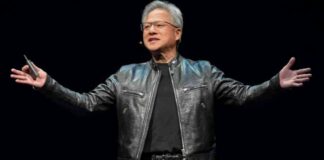The rapid evolution of the modern workforce presents significant challenges for both academia and employers alike. As colleges and universities struggle to keep pace with the ever-changing skills required in today’s workplace, a disconnect arises between the abilities of graduates and the expectations of employers. This disconnect forces employers to invest more heavily in onboarding, upskilling, and reskilling programs to bridge the gap and ensure the productivity of new workers from the outset of their employment.
The Need for Upskilling in the Modern Workforce
Rajesh Namboothiry, the Senior Vice President and head of Manpower U.S. at ManpowerGroup, highlights a growing reluctance among employers to hire college graduates. This sentiment is not limited to a specific sector or industry but is pervasive across the board. The challenge lies in aligning the skills of graduates with the demands of the workforce, a task that requires a collaborative effort from all stakeholders.
Research from Bright Network, a recruiting agency with over 14,000 members, reveals a significant disparity between what graduates believe employers value and what employers actually prioritize. While graduates place a high value on industry experience, employers prioritize passion for the business and resilience. This disconnect can leave graduates feeling uncertain about their prospects in the job market.
The emergence of new technologies, such as generative AI, further complicates the hiring process. AI tools have become integral in screening job applications, making it harder for employers to identify top candidates. As James Uffindell, CEO of Bright Network, notes, AI levels the playing field by elevating all applicants to a certain standard, making it challenging to differentiate between candidates.
The Rise of Boot Camps and Upskilling Programs
In response to the shifting demands of the workforce, both students and employers are increasingly turning to alternative paths for skill development. Tech boot camps and certification programs have seen a surge in popularity as individuals seek to upskill themselves outside of traditional academic settings. Bright Network reports a spike in applications for training programs since its launch in 2021, indicating a growing interest in alternative education pathways.
Employers are also recognizing the value of candidates who have pursued upskilling opportunities independently. Lupe Colangelo, Director of Employer Partnerships at General Assembly, highlights the benefits of hiring individuals who have completed tech boot camps or obtained additional certifications. These candidates demonstrate a proactive approach to skill development, making them valuable assets in a rapidly evolving workforce.
General Assembly’s State of Tech Talent report reveals a shift in hiring practices, with many companies seeking new talent sources and reducing traditional educational requirements for open positions. This trend reflects a growing emphasis on skills and capabilities over formal degrees, signaling a broader shift in the recruitment landscape.
The Role of Companies in Bridging the Skills Gap
To address the skills gap between academia and the workforce, companies are taking proactive steps to invest in upskilling and reskilling programs. Partnering with external organizations that specialize in skill development and placement, such as ManpowerGroup’s collaborations with industry leaders like Cisco, Microsoft, and IBM, companies are working to close the gap and ensure a pipeline of skilled workers.
Namboothiry emphasizes the importance of addressing niche skills and their demand in the current job market. By offering programs like MyPath, which helps associates develop new skills for growth jobs, ManpowerGroup has seen a significant increase in participation rates. This focus on upskilling programs demonstrates a commitment to preparing workers for the evolving demands of the workforce.
In-house onboarding processes are also being revamped to support the seamless integration of new hires into the workforce. A renewed emphasis on structured onboarding, ongoing support systems, and mentorship opportunities aims to set young entrants up for success in their roles. By identifying gaps in knowledge and providing targeted training, companies can ensure that new hires are equipped to excel from day one.
The Future of Workforce Development
As the modern workforce continues to evolve, the importance of upskilling, reskilling, and onboarding cannot be overstated. Employers must adapt to the changing landscape by investing in programs that enhance the skills of their workforce and prepare them for the challenges ahead. By fostering a culture of continuous learning and development, companies can empower their employees to thrive in an ever-changing environment.
In conclusion, overcoming upskilling challenges in the modern workforce requires a strategic and collaborative approach from academia, employers, and employees alike. By embracing alternative education pathways, leveraging new technologies, and investing in ongoing skill development, companies can bridge the skills gap and ensure the success of the youngest generation of workers in today’s transforming workplace.






















